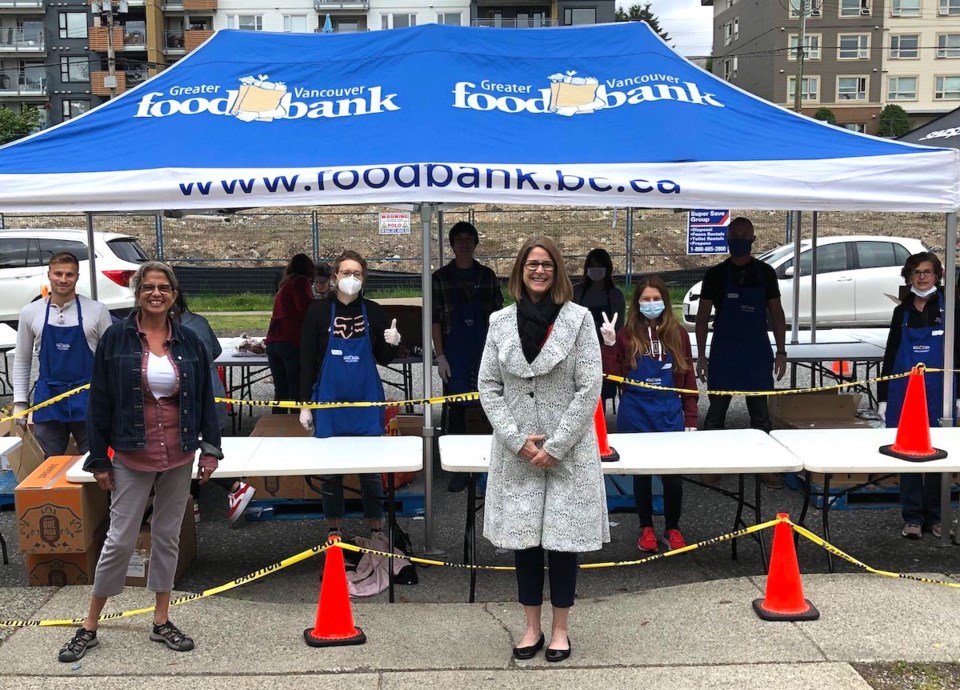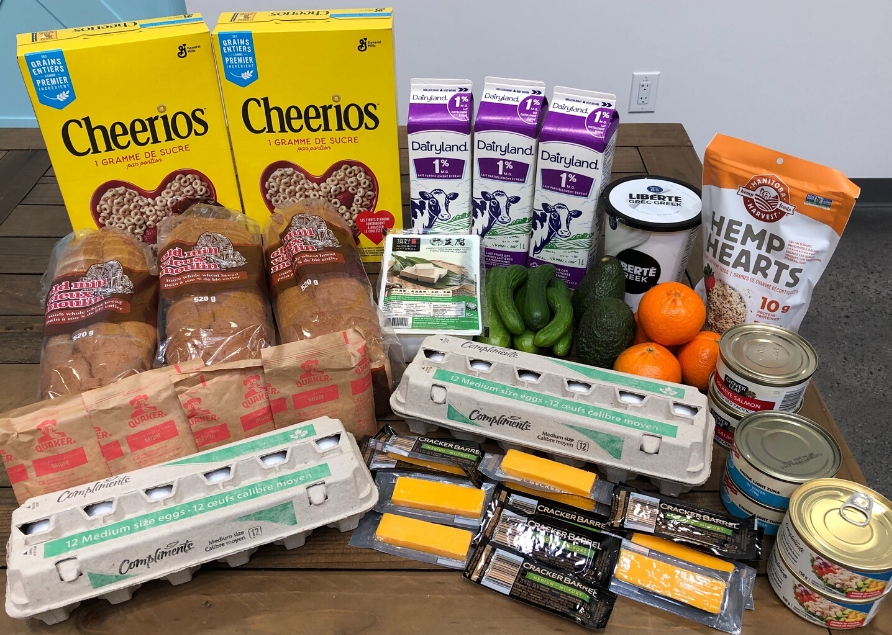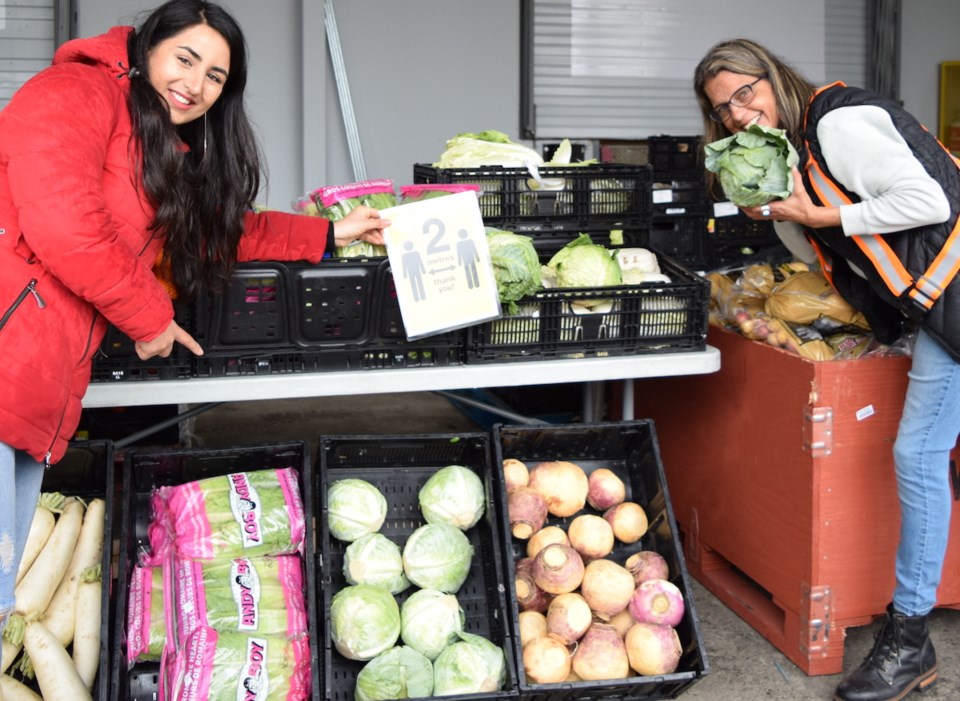Thanksgiving is a time to be mindful of the blessings life has given you. For many, that gratitude is translated into a desire to give back.
Traditionally, every September the BC Thanksgiving Food Drive launches the season of giving. In September 2019, half a million pounds of food was donated across the province.
In 2020, the tradition remains but the execution looks a bit different.
While food banks welcome donations of food, the coronavirus has added a layer of complication. Food donations need to be received and sorted by volunteers before distribution to people who find themselves unable to meet their grocery needs. Given that volunteers must be kept safe from the risk of getting or spreading the coronavirus, that’s a much more difficult process.
This coming Saturday, Sept. 26, the Greater Vancouver Food Bank will host a donation drive outside the North Vancouver Walmart. Volunteers will accept donations of food but people are also encouraged to make monetary donations through touch-less debit or credit.

There are added benefits to donating money instead of food, says Terra Parades, the food bank’s manager of community events and engagement.
“Getting food donations is great but it’s very manpower heavy. It’s also very waste heavy,” she says. “About 30 to 50 per cent of everything that comes in through traditional food drives ends up being waste, either because it’s been opened or damaged or is past its best-before date.
“It’s devastating when we see a thousand pounds come in and we can only use about 700 pounds of that food.”
Because of its network of suppliers and ability to buy in large quantities, the food bank’s buying power is, in general, about two to one. It can buy twice as many groceries per dollar. The rate used to be three to one but the food bank has shifted its focus to foods that are more nutrient and protein rich.

“We’re buying more food now, but that costs a little bit more money,” she says. “As well, people are getting more food than they ever did before.”
When the pandemic first hit in March, the GVFB saw a drop in its regular clients who were following the stay-at-home protocols. However, as the economic toll continued and the GVFB found ways to keep volunteers and recipients safe, demand increased by about 20 per cent. Fortunately, monetary donations kept pace.
With the federal government’s income-supplement program coming to an end on Oct. 3, demand is expected to increase. “There are a lot of people who don’t know where their next paycheque will come from,” Parades says.
The pandemic’s disruptions to the distribution process are still making it challenging to ensure that food is getting to the people who need it.
The GVFB has about 80 community partners, including North Shore Neighbourhood House, which is open for food pickups every Wednesday from 4 to 6 p.m. Starting in October, that switches to 1 to 6 p.m. To receive food at this location, you must be a North Vancouver resident.
The North Shore Thanksgiving food drive is outside the Walmart at 925 Marine Dr. in North Vancouver this Saturday. It is from 11 a.m. to 3 p.m. You can also make online donations at Foodbank.bc.ca.
Martha Perkins is the North Shore News’ Indigenous and civic affairs reporter. This reporting beat is made possible by the Local Journalism Initiative.



